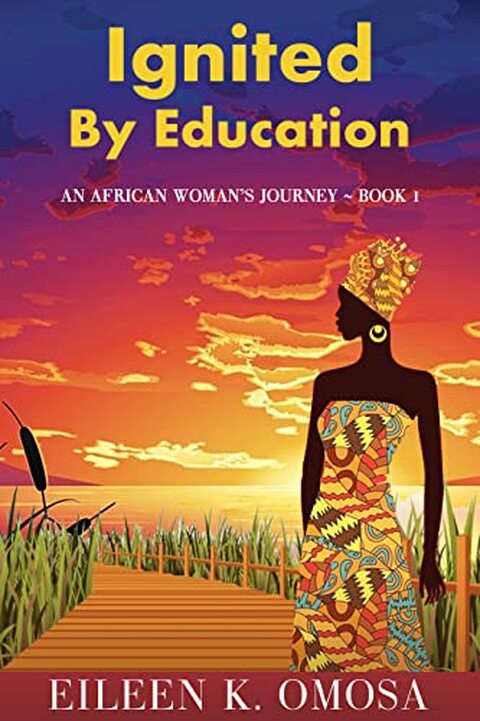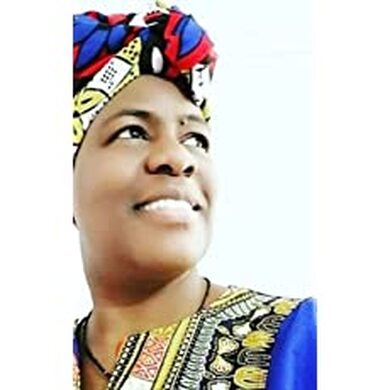|
book reviews |
|
Multi-volume, multi-genre author, Eileen Omosa introduces us to the first volume of her new sweet romance series, “An African Woman’s Journey”, “Ignited by Education”: She’s the most educated girl in the village, but her parents are worried she read the wrong books. Will they ever find a common understanding? By sheer luck, Sophia Mariko has completed university education through grants for students from poor families. She’s focused on building her career and to pay fees for her siblings when her father summons her to the village to get married. Sophia could resist and stay in the city, but her job is insecure. Richie floods her work desk with red roses and proposes to marry her. She turns down his overtures but becomes desperate on learning he’s the son of her employer. Can Sophia shun marriage, yet her upbringing prepared her for the role of a wife and mother? Or will she abandon her job and drop back into the poverty she has worked so hard to overcome? I enjoyed this sweet romance. To be honest, I had to look up what this genre included; I admit romance is not my first choice for reading pleasure. The truth is, this story is a lot of fun. Sophia is a woman with a plan and she is determined to complete her plan, I admire her fortitude. There are many elements that are necessary to bring a story to life, Eileen weaves this tapestry quite well. The plot and sub-plots were interesting, scene setting was quite good, and the dialog was downright funny at times! I laughed out loud more than once! I savored the local flavor of Africa Eileen wove into the story, she shared what a lot of the Kiswahili language terms meant. Kiswahili is spoken by nearly 100 million people in Africa. Learning about food and cultural customs enhances a story for me a great deal. The action was played out quite well also, without being too exhaustive and bogging the story down. All things considered; this story gave me several hours of reading pleasure. I award 5 stars to “The Girl Who Left the Village”! I am happy to share that volume two of the series is available at this time: “The Secret He Never Told Her”. You can buy this book:
https://www.amazon.com/Ignited-by-Education-African-Womans-Journey You can follow Eileen Omosa: https://twitter.com/iGrowideas https://www.eileenomosa.com https://www.facebook.com/EileenOmosaAuthor Tags: multicultural, hope, contemporary women’s fiction, sweet romance, international business, college, international travel, Italy, Kenya Copyright © 2018 Mark L. Schultz except for the author’s introduction
23 Comments
6/25/2018 11:30:06 pm
Thank you Mark for the great review, it helps bring the book to life.
Reply
Mark
6/26/2018 10:25:25 am
You are very welcome, Eileen. I enjoyed your book quite a bit. That might be a good idea, translating your book. How many African countries have English as a practical or official language?
Reply
My first publications were in the 1980s, mainly articles in local magazines. Later, in university, I published in an Anthology– Poems from Kenya, edited by my literature Professor.
Reply
Mark
6/26/2018 03:34:07 pm
You have been writing for a long time, Eileen. I can see you have a heart to help others, I love that.
Reply
On one hand I can say my writing has changed, on the other, it has not.
My involvement in food security goes back to my younger days, in relation to the changes I have witnessed over the years.
Reply
Mark
6/26/2018 07:26:42 pm
Very serious issues, especially for someone who has immigrated to an area they are unfamiliar with. If they were unable to connect with fellow immigrants, then the food issue could be a steep learning curve. Thanks for the question on immigrant access to familiar food. The first week of our arrival in Canada, our host took us to a church denomination different from ours. Their explanation was for us to meet with immigrants from different parts of Africa. It worked, we were given information/shown stores with multicultural food items. For immigrants who can afford, once you can access familiar food at a new locality, the place becomes home.
Reply
Eileen
6/26/2018 08:42:36 pm
Food brings people together. Even in the modern world/cities where family members study and work odd times, they tend to have a meal that brings them together - breakfast, dinner or weekend meals. In my book, The Choices She Must Make, Sophia and her sister are equally busy from morning to evening, but they eat supper together and that's when they have time to share experiences during the day. The same happens in their rural home, the family discuss diverse issues around a meal.
Reply
I am an introvert, ISTJ. I work as a research consultant (qualitative), and write when I am not at my work desk.
Mark
6/26/2018 09:23:49 pm
It is probably a good thing that no one would recognize themselves in your book. That really gives you complete control.
Mark
6/26/2018 09:35:41 pm
Tomorrow, I will be out of town and probably out of internet range. So I have a number of questions to put before you and you can take your time answering them. Feel free to start a new thread if you wish for every other question or every question.
Reply
Eileen
6/27/2018 01:28:33 pm
Thank you for the questions. I will provide responses one question at a time, I will indicate each question at the top of my response.
Reply
Eileen
6/27/2018 07:27:30 pm
"So, do you ever struggle with writer's block, how does it affect you and how do you get around it?
Reply
Mark
6/28/2018 12:53:51 pm
That is great self-observing! You know what the signal is and you have a great plan for dealing with it. I love that you have multiple projects, I have heard that concept before and it sounds really good to me.
Eileen
6/27/2018 10:09:46 am
"One of the things in "Choices" that was easy for me to identify with was the passenger vans that Sophia used for transportation. While living in San Francisco as a young adult, I rode buses a lot. In one part of the town, there was an alternate form of travel, the jitney. It was a highly decorated passenger van that traveled the length of one street and back in the Mission district. It was faster than the bus." - Mark
Reply
6/28/2018 12:50:26 pm
Do you have any writer friends that have been particularly helpful?
Reply
Mark
6/28/2018 01:10:26 pm
I have come to believe very firmly in networking, it's one of the things I like about Twitter. You have done well in working and leveraging networking, but as you said, it's a two-way street. Giving to others is very important. That is one of my cardinal rules on Twitter.
Reply
Eileen Omosa
6/28/2018 06:00:54 pm
Thanks for the question on suffering in order to write well. Up to two years ago, when the writing bug revisited me after many years of being dormant, I was convinced that writers are born not made. As I read many types of writing resources, I encountered stories on what some writers went through before they wrote their first book. Some of their stories are convincing because of the aspect of, "necessity being the mother of innovation."
Reply
Mark
6/28/2018 06:43:10 pm
I am not sure I would call an internal impetus or driving motivation suffering, but since I am not walking in those shoes, I will not push it. ;-) I did leave it wide open, by not specifying any particular kind of suffering.
Reply
Eileen Omosa
6/29/2018 07:37:29 pm
My first independently published book in 2016 was, “Grandma Arrives in the City: and our new baby is clean-shaven.” The book reveals a cultural practice by paternal grandmothers to welcome a newborn grandchild into the family. While in the city, Grandma narrates stories to her other grandchildren on the cultivation, preparation and nutritional value of indigenous vegetables.
Mark
6/29/2018 11:30:52 pm
You have learned a great deal. Thank you for sharing some of that knowledge. You are correct, some new writers think once the book is published it's a set and forget deal, it will sell itself. As you say, marketing is an essential task.
Reply
Leave a Reply. |
Who am I?An avid reader, typobuster, and the Hyper-Speller. I am a husband, father, and grandfather. Archives
May 2024
Categories |


 RSS Feed
RSS Feed